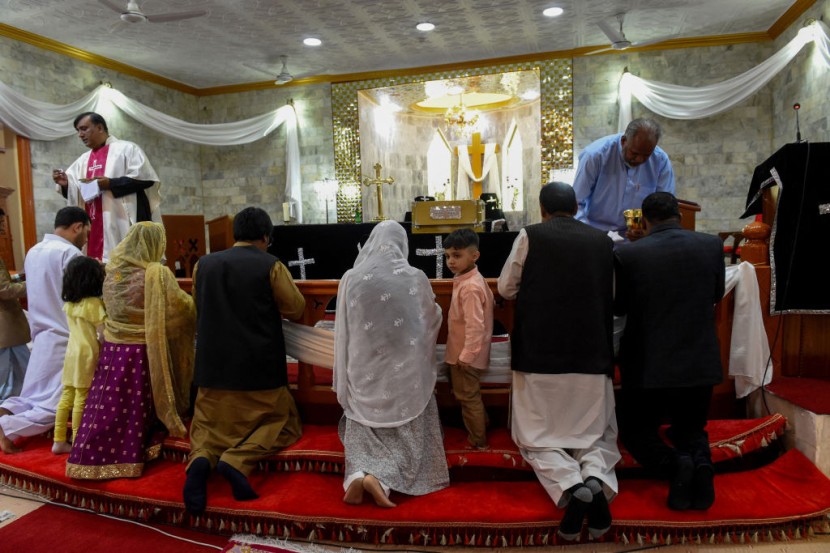
Hundreds of Muslims attacked a settlement of Christians in eastern Pakistan over allegations of blasphemy, then threw stones and bricks at police officers who intervened to quell the violence.
At least 10 Christians were badly beaten and a house and a small shoe factory were set on fire during the Saturday rampage, Reuters said, citing local police and a Christian leader.
The house and factory in the Mujahid Colony area of of Sargodha, a city in Punjab province, were both owned by a man accused of desecrating pages of Islam's holy book, the Quran, according to the Associated Press.
The police rescued the man and his father from the mob, saving their lives, district police chief Ijaz Malhi told AP.
Video clips posted on social media reportedly showed attackers looting the burning buildings and tossing stolen items into a bonfire in a street, according to Reuters.
One victim who was taken to a hospital was reportedly in stable condition and 11 police officers were injured rescuing Christians from the angry crowd before cops cordoned off their settlement.
About 25 Muslims were arrested and calm was restored by late evening, with leaders on both sides calling for peace, police said.
A Christian rights group — Minority Rights March — said that a 70-year-old man was beaten and dragged by the mob and that video footage showed cops stood by as it happened.
The police denied the allegation.
Islam is the official state religion in Pakistan, where 96.5% of the population is Muslim, according to the CIA World Factbook.
Under Pakistan's harsh blaspheny laws, insulting Islam or Islamic religious figures is punishable by death and although the state hasn't executed anyone for it, there have been numerous reports of street lynchings based solely on accusations.
Following Saturday's violence, the independent Human Rights Commission of Pakistan said the country's Christians were "at grave risk to their lives at the hands of the charged mobs."
Human rights groups have also said allegations of blasphemy were often used to settle personal disputes.
© 2025 HNGN, All rights reserved. Do not reproduce without permission.








